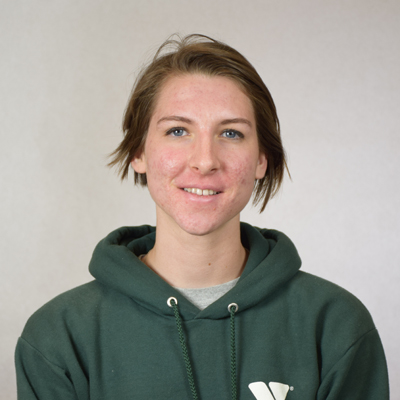Crisis Counselor Calms Student Stress
December 16, 2016
For students under immense academic and personal stress, life can quickly swing from productive to exhausting. Having someone who can offer advice on how to manage different pressures can be key to balancing work and fun. John Barakos, licensed marriage and family therapist, works in the school’s counseling office to help students cope with the many potentially stressful issues they face.
Accessing mental health service at school benefits students who may otherwise have to struggle on their own. While academic counselors can help with some problems, they often do not have the time to meet regularly or for extended periods of time. This is where Barakos fills the void. “It’s a confidential space outside of school counseling. He is a tremendous help to us because our time is limited, although we wish we could do more. His job here is invaluable,” said coworker Jenna Wrobel, licensed MFT.
Each academic counselor is assigned a quarter of the student body. They see individual students a few times during the school year. Barakos, however, holds an open door policy for anyone struggling in the school environment. He has around 50 regular clients, then takes teacher referrals and what he calls “drop ins,” which are students in crisis. “There is no typical drop in, it’s really varied. Anything from worrying about something related to school work, to social stuff to major stuff. We have everything from friend issues to suicide,” said Barakos.
When meeting with students, Barakos first listens, then recommends short term solutions based on the situation. “I see a lot of anxiety, so sometimes we teach mindfulness and breathing and how people deal with their anxiety,” said Barakos. He also offers suggestions on how students can manage their class load and many extracurricular responsibilities. “We also have students who get way too into the relaxation side and need help to get back to the academics. It’s balancing, that’s a really big theme. That, I think, is the biggest challenge. Balancing expectations that the students have in their lives and there are a lot of them,” Barakos explained.
Barakos’ job became even more significant since Campolindo adopted Stanford’s “Challenge Success” program in an effort to improve the campus culture. “This is an extremely high achieving school, so I think there is a lot of pressure to do homework and keep up in class. Just the stress from the academic load is very high, plus parent pressures and family stuff. Just other things from outside that interfere with your life,” said Barakos. His goal is to show students that they can be academically competent while taking care of themselves and enjoying life.
In particular, Barakos said that “having a position at the school that directly deals with mental health and social-emotional issues, not just academics,” is vital. Many districts, including the AUHSD, cannot afford a full time school psychologist. The Moraga Education Foundation has provided the funding support to maintain the crisis counselor position at Campolindo.
Currently, a number of experienced counselors work next door to each other in the counseling office, close enough to collaborate and make a positive impact in student’s mental health. “That’s one of the strengths of the department, we all work together. We are strong across the board with clinical experience, which is why I chose to work here. Campolindo has a really high functioning counseling department,” said Barakos.
Barakos experiences make him uniquely qualified to treat the student issues in the district. “I went to Acalanes and lived in Lafayette as a kid, so I know what the community is like in terms of the pressures. Also working with a lot of kids sorting out problems and finding what helps. Also having 4 boys, 2 in high school and 2 in college, and going through the process as a dad,” said Barakos.
Barakos seeks to treat the problem of student stress at its source. His recommendation: “Find the stuff you love and include it into the things you do.”
Giving students face to face validation about their struggles and using the Challenge Success program as a rubric, Barakos hopes that he can help Campolindo students find a healthy balance between their achievement and social-emotional needs.
